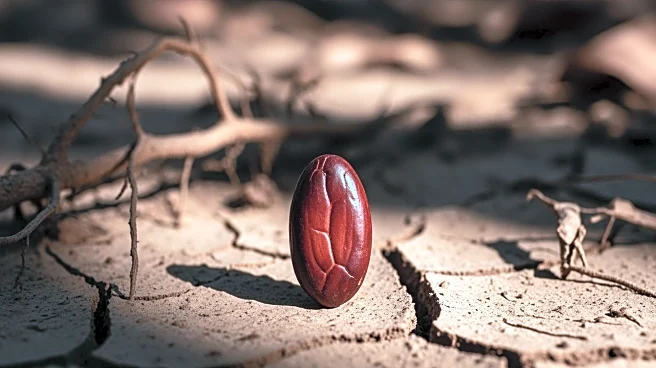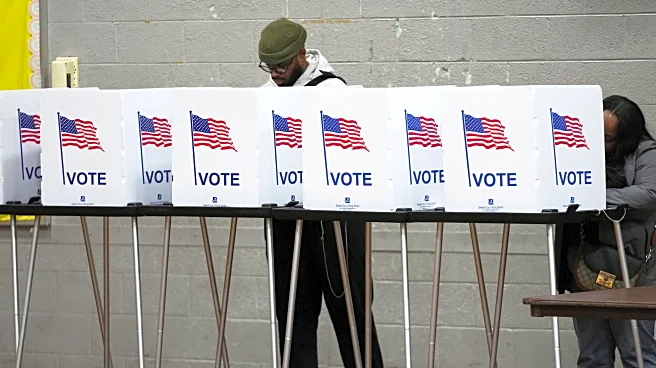What's Happening?
Coca-Cola has launched a new soda in the United States made with cane sugar, following a request from President Trump. The company announced the introduction of a 12-ounce glass bottle version of Coca-Cola Original
Taste, made with U.S. cane sugar, available in select markets. This move comes after President Trump claimed that Coca-Cola agreed to add 'REAL cane sugar' to American Coke, asserting that it offers a better taste. Mexican Coke, which uses cane sugar, has been popular in the U.S. since its importation began in the early 2000s, with fans praising its cleaner taste. Coca-Cola already uses cane sugar in other U.S. beverages like Simply Lemonade and Gold Peak iced tea. However, the rollout of the cane sugar soda faces challenges due to limited supply and production capacity for glass bottles.
Why It's Important?
The introduction of cane sugar Coca-Cola in the U.S. reflects a shift in consumer preferences towards products perceived as more natural or traditional. This move could impact the beverage industry by setting a precedent for other companies to reconsider their sweetener choices. Health Secretary Robert F. Kennedy Jr. has criticized high-fructose corn syrup, linking it to health issues like obesity and diabetes, which may influence public opinion and policy. While experts warn that switching sweeteners may not significantly improve health, the demand for cane sugar products could drive changes in supply chains and production methods.
What's Next?
Coca-Cola plans a measured rollout of the cane sugar soda due to supply chain constraints, including limited availability of cane sugar and production capacity for glass bottles. The company aims to expand bottling capabilities to distribute the new drink nationwide. Stakeholders, including health advocates and industry competitors, may react to this development, potentially influencing market trends and consumer choices. The success of this product could lead to further innovations in the beverage industry, focusing on traditional ingredients and packaging.
Beyond the Headlines
The shift to cane sugar in Coca-Cola products highlights broader cultural and ethical considerations regarding food production and consumer health. The debate over sweeteners touches on issues of transparency, consumer rights, and the role of corporations in public health. As consumers become more health-conscious, companies may face pressure to adapt their products to meet these demands, potentially leading to long-term changes in industry standards and practices.










